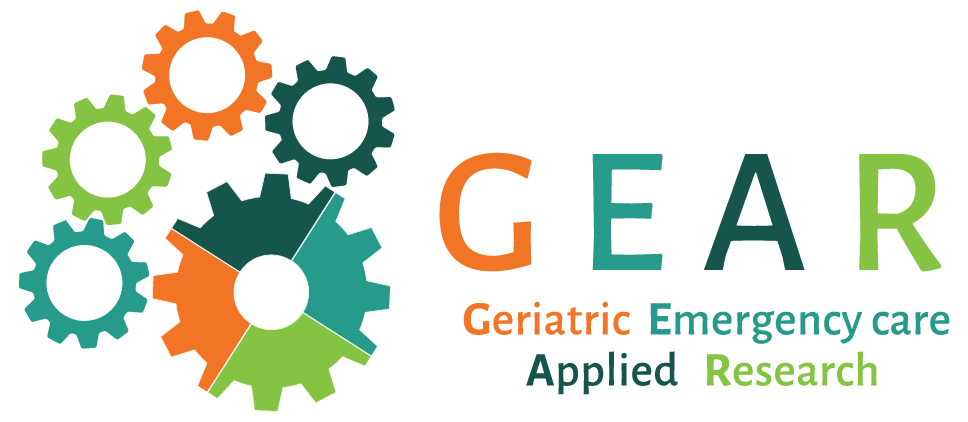Cognitive Impairment - Delirium
With a research focus on the early stages of delirium in emergency medicine, GEAR could lead the field in studying interventions.
Delirium is multifactorial in its etiology, with histories of cognitive impairment and dementia being key risk factors. Individuals identified as experiencing delirium in general and in the emergency department are more likely to develop dementia as older adults. Yet, almost three decades of research has shown that delirium and dementia are under-recognized in emergency departments, despite a proliferation of screening tools. Under-recognition in the emergency department leads to under-recognition in inpatient services, which has broad-reaching consequences, such as longer lengths of hospital stays, lower patient satisfaction, accelerated cognitive declines, and increased health care costs.
Best Practice Notes
Multiple screening instruments are available; however, EDs should choose wisely based on departmental considerations, such as:
- the similarities between their patients and the patients in which the tool was validated,
- whether identifying delirium is the highest priority for the emergency department,
- how well the instrument fits with the department’s charting system,
- how easy the instrument is to use, and
- whether use of the instrument will sustain delirium screening.
Cochrane Reviews found that none of the interventions implemented outside of ED settings were effective; however, EDs could implement some common-sense interventions:
- promoting mobility on longer-term ED patients,
- ensuring good sleep hygiene, and
- medication reviews by pharmacists, without waiting for randomized controlled trial (RCT) evidence.
Top Research Priority Areas
Top voted Cognitive Impairment in Delirium research priority areas ranked during the 2019 GEAR Consensus conference are as follows:
- prevention focus including developing screening instrument/risk score that does not entail additional nurse/physician workload,
- testing delirium prevention strategies in ED once high-risk individuals identified,
- identifying high-risk patients for cognitive impairment (lumping delirium and dementia together) then unique care bundles depending on dementia, delirium or delirium superimposed on dementia,
- knowledge acquisition - harness momentum in fields of cognitive impairment (mostly dementia) to build a multi-institutional data repository and research infrastructure for delirium research similar to PECARN,
- implementing - simultaneous evaluation of pragmatic reproducibility, fidelity, adaptability, and sustainability with accuracy and effectiveness is essential in building for implementation,
- phenotyping - is every case of ED delirium the same in terms of pathophysiology, anticipated trajectory, expected response to interventions, and accuracy for ED delirium screening instruments?
- survey of ED healthcare providers to define “difficult delirium cases”
